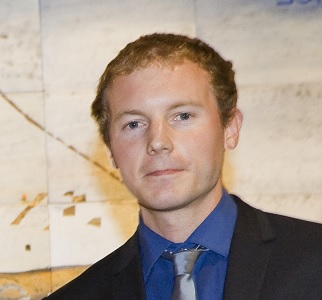
Project Summary:
Despite decades of intensive research a patient diagnosed with glioblastoma, a devastating form of brain cancer, still faces a dismal prognosis of only 15-18 months’ survival. Trials of targeted therapies for glioblastoma, while successful in other cancers, have proven ineffective. This is due in large part to the extreme variation intrinsic to these tumours. Populations of cancer cells that are sensitive to treatment die off, leaving resistant populations to thrive in their stead. To overcome this challenge, alternative therapeutic candidates have been sought.
One such candidate is the class of genes known as ‘microRNAs’. microRNAs do not code for a protein. Instead they interact directly with tens, to hundreds, of genes to decrease their expression. Fortunately, the technology to target microRNAs pharmacologically is rapidly improving. Synthetic compounds that target one of these global regulators, rather than a mutation present in only a portion of glioblastoma cells, provide hope that a more rational therapeutic strategy can be designed that will circumvent resistance to therapy.
One of the critical challenges is identifying which microRNA, out of the several thousand human microRNAs known, may serve as a useful therapeutic target. To answer this question we developed an innovative bioinformatics approach, taking advantage of publicly available datasets, which has successfully identified several microRNAs with involvement in processes relevant to glioblastoma biology. Our analysis confirms that these microRNAs are indeed interacting with multiple genes simultaneously. Excitingly, this analysis has also provided a new insight. microRNAs, contrary to what is currently thought, may in fact be activated at the same moment as the genes they are responsible for targeting. Combining our own analysis with published observations, we hypothesise that more than simply decreasing the activity of genes, the natural role of microRNAs may in fact be to orchestrate the timing of complex gene expression programmes. Indeed, our analysis has identified several microRNAs to have intimate roles in regulating critical cell cycle processes.
Unraveling this role of microRNAs in glioblastoma cell cycle control is of vital therapeutic importance. By precisely delineating how dysregulation of natural microRNA activity provokes aberrant entry to the cell cycle, we can identify a rational therapeutic strategy to correct this process and halt uncontrolled division. Unlike traditional mutation-based targeted therapies, this microRNA-based approach promises a target to which all glioblastoma cells may be susceptible. To achieve this goal a detailed study of microRNA and cell cycle target gene interaction is required, that places the timing of expression at the center of investigation.
Read more at: https://ccia.org.au/blog/brain-boost-top-phd-research/



 The Brain Foundation is the largest, independent funder of brain and spinal injury research in Australia. We believe research is the pathway to recovery.
The Brain Foundation is the largest, independent funder of brain and spinal injury research in Australia. We believe research is the pathway to recovery.